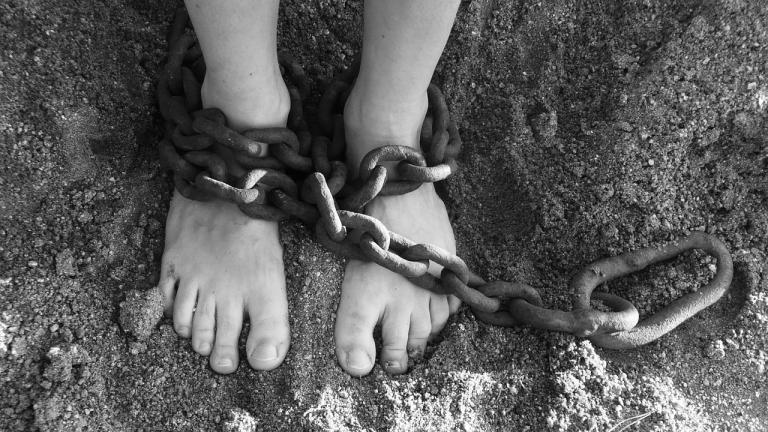This is a talk that I gave this weekend for a marriage retreat.
There are two dimensions of the role of friendship in marriage that I want to address. The first is the role that friendship between the spouses plays in keeping a marriage strong, especially during difficulties, and the second is the role of other friendships in supporting strong marriages.
So we have a cultural narrative in our society that says that romantic love is the highest and greatest form of love. This is the foundation for lasting and permanent relationships. It’s the most passionate kind of love. It’s the sizzle that makes marriage great right?
The problem with this, and those of you who are relatively new to marriage might not be at the point where this is apparent yet – don’t worry, it’ll come – but romantic love is not only the most wonderful heart-pounding, palm-sweating, ecstatic, fantastic kind of love. It’s also the most fickle and unstable kind of love. Because it’s very embodied, very sensual, and although bodies are lovely they are also inconstant. They grow old. They break down. They get sick. They fluctuate to the music of the moon. And a lot of modern marriages are not prepared for this. If you look at divorce, one of the major reasons that people give is “we just weren’t in love anymore.” Meaning, we stopped having these feelings.
Now, I’m going to draw a bit of a weird distinction here between feelings and emotions – and trust me, this is going to help us understand what I mean when I talk about friendship as a form of sustaining love in marriage. A feeling, as I’m defining it for today, is a thing that happens in the body. Basically, a biochemical surge that produces some sort of felt physical affect. So if you imagine fear, immediately you think of guts clenching, and hot sweat, and your heart pounding, prickles climbing up the back of your spine, heightened senses, and the hairs on your neck standing on end. And these are all basically biological reactions, right? They’re a way that the body reacts to danger, and they’re mostly symptoms of adrenaline being released into your bloodstream.
Biochemistry. The same thing happens when we have the experience of falling in love. In this case the feelings are somewhat gooshier and they’re mostly pleasant, but we can pretty much explain them in terms of biochemistry. And they serve a clear purpose in terms of survival of the species. However, we’re human beings. So we can’t be reduced to biological phenomenon. When we say “I love you” we don’t generally mean “You really give me an oxytocin high.” We mean something a lot more complex that involves feeling, but also all of the other elements of our personalities – our thoughts, our desires, our choices, our will, even our social relationships.
So a feeling is just biochemistry, but our emotions involve the whole person. And this is why we say that love is more than just a feeling. We don’t mean that it’s unemotional. There’s this great philosophical definition of love “Love is to will the good of the other.” No emotion. No feeling. This is love for androids. But we’re incarnate beings, so love for us is emotional.
The problem then is that you have these feelings, which are largely, not completely, but largely out of your control. I mean, you can do things to try to spark those feelings if they’re not coming naturally. If you look at women’s magazines, especially those that are geared towards a slightly older audience, you’ll find that they’re absolutely chalk full of these articles on how to put the fire back in your marriage. Candlelit dinners and soft romantic music, and if that doesn’t work, how about some light bondage? Or a little blue pill. ‘Cause that’s how you fix a marriage, right?
But these articles are ubiquitous for a reason. People want this feeling, and we’ve been taught that the feeling is the essence of what it means to be in love. So people do get desperate, and they will try anything, because they don’t want their relationships to fall apart.
Now, this is where friendship comes in. And ideally, you want to start to cultivate it early so that it’s there for you when you hit a crisis of desire, rather than hitting a crisis and then starting to try to build up a friendship when you’re kind of mutually frustrated and betrayed. Because it can feel, somewhat, like a betrayal when those feelings start to ebb.
We’re not very rational about our emotions most of the time, so if the other person is stressed, or they’re sick for a long time, or they’re exhausted (perhaps because of pregnancy), or they’re depressed, or they’re just getting old we often mistake the lack of physical desire, the lack of intense romantic feeling, for a loss of love. We self-blame. We think “What am I doing wrong?” Women often go on diets and drive themselves nuts trying to make themselves more physically attractive in the hopes that that will solve the problem. Men often just withdraw because they feel ashamed.
At the bottom of all of this there’s a perception that the relationship has become lacklustre as a result of rejection, or as a result of some kind of profound wound, as a result of resentment, or disappointment, or. Whatever. And sometimes, that’s true and it needs to be addressed – but a lot of the time we get very wound up about things that are really just biological events. It’s like people who suffer from depression. You just cycle through endless explanations for what’s wrong, and every time that you solve one of the problems that’s supposedly making you sad, you don’t feel better and there’s another one that takes its place. Because you think the cause is psychological, that it’s something mental, something that’s in your control. But actually it’s biology, and you’ll make a lot more progress by getting sunlight, or exercise or changing your diet or getting medication than you will by endlessly analysing the thoughts that are going through you head.
Same deal with a lack of romantic feeling. So if your marriage is basically based on these feelings, and on physical affection, then if those things start to wane the relationship goes into crisis, and there’s no security net available. You don’t have an alternative way of relating while the problems get worked out. Or, I mean, sometimes there’s not a problem at all. Sometimes it’s that you’ve just had a baby, or you’re no longer young. Normal life events.
If you’ve built up a friendship in your marriage, then these things are much easier to get through because you have a basis for relating that is based much less on feeling. That’s not to say that friendships are unemotional, but rather that emotion in friendship works differently than emotion in romance. In romance, you’re usually beginning with very strong feelings that drive the relationship, whereas in friendship the emotional bond usually develops slowly, as a result of time spent together, common interests, and so forth.
So the feeling involved in friendship can be really deep and really intense, but it’s a quieter kind of intimacy. It’s more deliberate. It’s more intellectual. And as a result, it’s easier to sustain through conscious choices that you make. If you make the decision to make love, you may or may not get fireworks – and of course there’s a huge amount of potential conflict surrounding sex. But if you make the decision to spend some time every week doing things together that you both enjoy, that’s going to feed your relationship and unless you’re in the middle of a really big fight, that time is going to be pleasant time spent together.
Friendship within marriage is this slow-burn decision to make time together that isn’t about romance. It’s not about trying to get the spark back. It’s not time that you spend talking abour the relationship. It’s not practical time that you spend solving domestic problems, or dealing with the kids. It’s just time that you take to be in each other’s company with your attention focused on something that you’re both interested in, that isn’t the other person and isn’t yourself.
Also, something that isn’t just passive entertainment. So if you’re both film buffs, and you get a really good movie and you watch it together and then afterwards you sit and analyze the themes, or critique the cinemetography, or debate different interpretations of the director’s vision, then that will build friendship. But if you just put on a show that you’re both kind of interested in, and then after it’s over you kind of lug yourself off to bed, that doesn’t really count.
What kinds of mutual interests, exactly, you use to build friendship in marriage will vary from couple of couple because it’s completely personality dependant. My husband and I discuss literary theory, work on novel-writing, play board games, sing along to heavy metal, debate philosophy and develop elaborate live-action role-playing games for our children together because we are both geeks. We also have an unusual amount of overlap in our interests – most married couples don’t have nearly as many things in common – because we happen to have been best friends for a number of years before we got involved romantically.
In our case, then, it’s easy. There are over a dozen common interests that we share, and we can happily spend more or less infinite amounts of time doing those things together. But what do you do if you don’t have nearly as many things in common? What if your relationship started mostly with romantic attraction, and you find that as the romantic attraction diminishes you don’t have much in common left to go on?
This is a very common problem. The first thing I would say, is that most couples do have common interests to begin with. It’s very unusual for people to get together if they have literally nothing in common. But what happens is that these common interests get neglected or trivialized at some point in the relationship. So maybe you really love dancing, and dancing was a huge part of your courtship. But you get busy and you stop making time for it. Then slowly, it becomes something that you used to enjoy…but you haven’t done it in so long that it feels weird and unnatural to go back to it. The thrill is gone. Because interests are kind of like potted plants. If you water them, they thrive. If you ignore them, they kind of wilt and eventually they die.
That’s the first thing, then. Keeping up mutual interests is not a waste of time. It’s not just trivial fun. If you don’t do it, then you’re letting one of the threads that holds your relationship together weaken. So it’s really important to make time for those things, to keep those interests alive, so that when you’re going through a tough time you have that available as a way to get outside of your problems and just enjoy one another’s company.
The second thing, and this is a little more difficult to do, is that you can develop an interest in something that your spouse is interested in. If you try to do this in the midst of a crisis or a fight, it’s probably going to come off as weird and stilted – so don’t do that. But if you’re getting along, and things are good, then it can be really rewarding to kind of step outside of your own tastes and preferences and get involved in something that you wouldn’t ordinarily be interested in, but that your spouse loves.
So for example, I’m naturally Beethoven girl. I like opera. The first time my husband put on heavy metal I was like “Uh. What is this? It just sounds like noise.” But over the years, talking to him about music, and about art, and listening to stuff with him and learning to understand what it was that I was listening to, and why he likes it, I eventually reached the point where it made sense. Where I could hear that it was actually music, with complex harmonies, and form, and beauty, and all of this really interesting stuff going on, even though originally it just sounded like a bucket of hammers being dumped on my head. And now, listening to the new Iron Maiden album, and talking about the songs, is one of the things that we do together.
When you develop common interests in this way, what you’re basically doing is providing yourselves with things that you can do, things that you can talk about, things that you can enjoy together, that don’t depend on any romantic feeling, and that kind of take you outside of yourselves. It adds a dimension to marriage that is resilient because it’s almost crisis-proof. Whatever problems you’re having in your relationship, whatever stresses your under, whatever domestic disagreements you have, there’s a place that you can retreat to get away from it – and this is the critical thing, it’s a place where you can retreat together. So it’s not just each of you going off alone to get away from one another (and sometimes that kind of space is important too), but it’s a place where you can reconnect without having to deal with any of the things that are causing stress and pain. It kind of lets you enjoy one another’s company while at the same time providing room for tensions to dissipate or simmer down before you go back to solving difficult problems.
Also, when there is no crisis, it’s also just really nice to live with someone whose company you enjoy on a lot of different levels. It’s another way of providing mutual pleasure and of growing closer to one another, so if you have this dimension as a constant thing in your relationship then the relationship is going to be stronger in general.
So that’s friendship in marriage. But I also promised to talk about the role that friendships outside of marriage play in strengthening and supporting the marriage bond.
One of the major difficulties that a lot of marriages face in contemporary culture is that we have this perception that marriage is supposed to be the one relationship that “completes” you. You know, your spouse is your other half. And there’s a very strong insinuation here that once you’ve found “the one” you won’t really need anybody else.
Which is completely nonsense. When you get married, you marry a human being, not a god. No one on this planet can fulfill every one of your needs. No one can fulfill every one of your needs for companionship, or intimacy, or emotional support either. And I think one of the big factors that pushes people towards adultery is that their emotional needs are not being completely met in their marriages – which is actually perfectly normal – but they’ve bought into this idea of a romantic partnership that will fulfill all of those needs. So they go looking for that perfect somone somewhere else.
The thing is that you are supposed to go looking elsewhere for people to provide for the emotional needs that your spouse cannot meet. Specifically, you’re supposed to go to your friends. If your husband is not a good shoulder to cry on when you have your period, it’s not because he’s an insensitive boor – it’s because he’s never had a period. He can’t relate. He is the wrong person to go to. That’s what girlfriends are for. Or if your wife isn’t able to be sympathetic to your frustrations with your teenage daughter, it’s not because she’s unsupportive – it’s because it’s because mothers have a deep inborn instanct to defend their kids. This is where you need to go out for a pint and compare war stories with another guy who has a teenage girl.
I’ve seen a lot of couples who end up seeing their friendships as optional, as competition for marriage, or who just end up moving away from their friends while they have small children, which is often a difficult situation for forming new friendships. And what happens as a result is that the couple becomes an isolated unit and all of the emotional burdens that are usually being dispersed over a support network end up being concentrated on that one relationship. And marriages do break under this stress.
I remember, for example, a number of years ago I was going through a period where I was very angry with my husband and I kept trying to talk it over with him, and get things sorted out, and it just wasn’t going anywhere. For obvious reasons he was not entirely sympathetic to my frustrations – given that the object of those frustrations was him. So I want to my spiritual director and asked him what to do, and he said, “You need to call another woman and bitch. Woman need to complain.”
And he was right. Really, a lot of the time in marriage the things that drive us nuts are either problems that don’t need to be solved, or they’re problems that are going to take a long time to solve, and talking to people outside of the marriage about those problems does a tremendous amount to make them bearable. For one thing, you tend to find that your married friends have similar problems and frustrations in their own marriages, which helps a lot to put things in perspective. Friends may offer solutions that you couldn’t see yourself. And they can just be there for you, to sympathize, to take your side, so that you don’t feel like you’re isolated and dealing with things all by yourself.
One of the things that sometimes goes wrong here is that one spouse will be jealous of the time that their wife or their husband spends with friends. Another, is that sometimes they’ll be resentful about their spouse complaining to their friends, you know “Why did you have to tell him/her about that?” There’s kind of desire to keep things in the family. That’s poisonous. It’s like running a pressure cooker without a release valve.
Obviously, there are situations where someone actually neglects their spouse and spends all of their time with their friends, and that’s not good – but in the majority of cases, spouses should do what they can to help each other cultivate healthy friendships outside of the marriage. Whether that means taking the kids so that your spouse can go out with their friends, or backing off so that they can have time on the phone, or legitimating the time that they spend writing e-mails, or welcoming their friends to come and stay as guests if they live far away – all of these things can encourage the health of a marriage. Because what you’re basically doing is investing in making sure that your spouse’s emotional needs are being met in an appropriate way. And also, you’re allowing other people to take some of the burden off of your family as well.
And of course, when there are crises, friendships are invaluable. A lot of the time the stresses that fall on a marriage fall equally on both partners – whether it’s financial hardship, or illness, or the death of a loved one, you have two people are stressed and hurting, and if those two people only have one another to lean on, they often end up bringing each other down. Having friends that you can rely on means that you have outside help, that you have people who are not stressed and hurting who can lift you up. And that really does make all the difference in the world.













